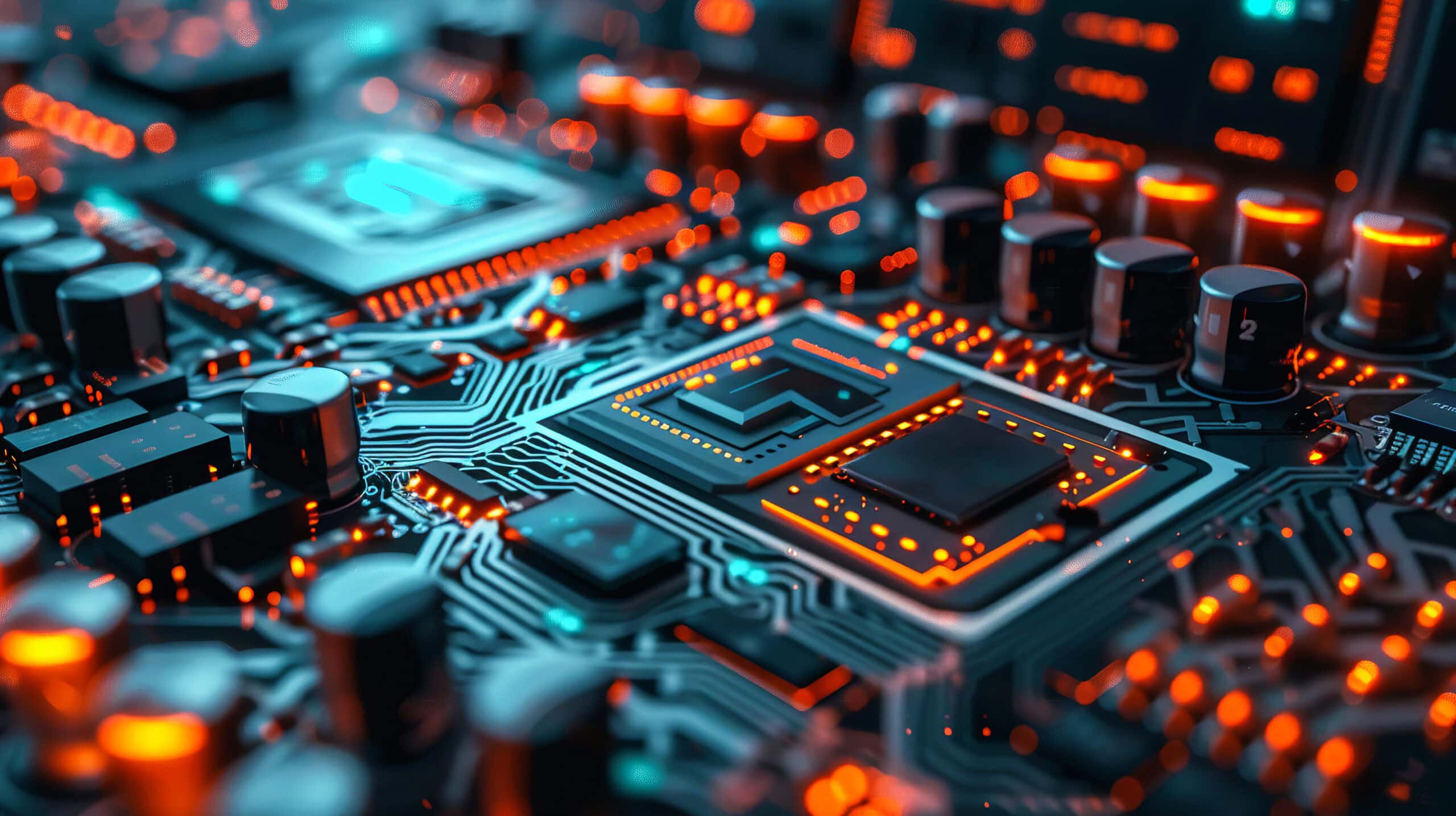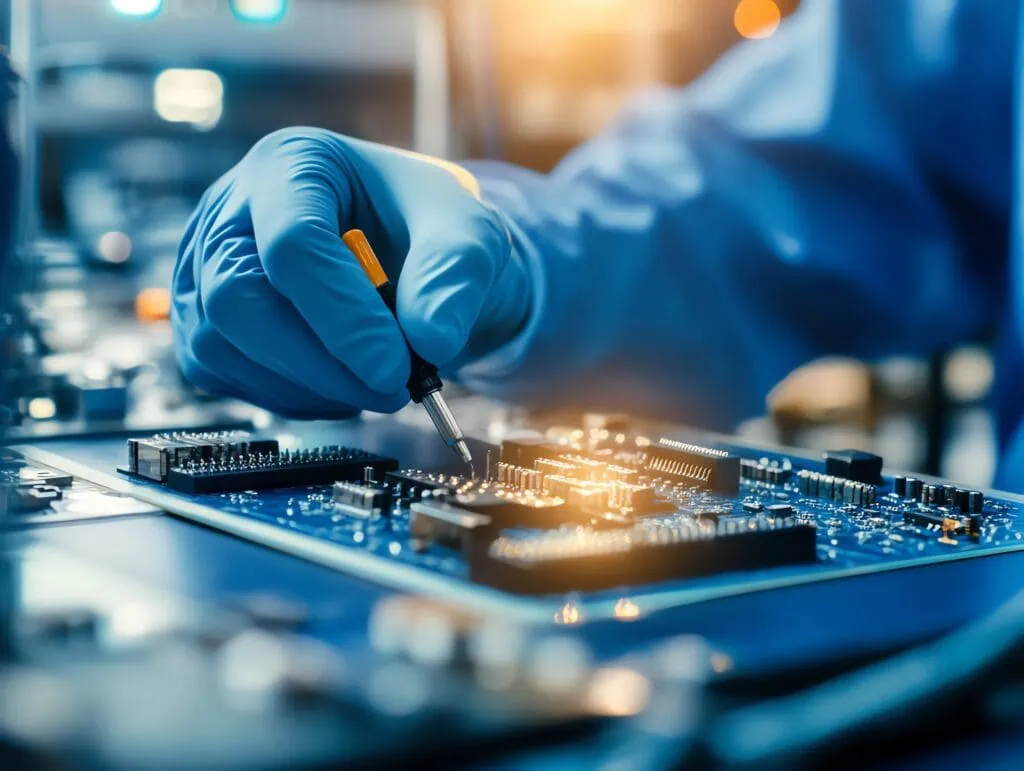How Artificial Intelligence Is Fueling Growth in the Electronic Components Industry
The artificial intelligence (AI) revolution is profoundly reshaping the electronic components industry, driving unprecedented demand across several key sectors. As AI technologies become integral to various applications—from data centers to consumer electronics—the need for specialized components has surged. This article delves into the specific electronic component categories experiencing significant growth due to AI advancements, supported by relevant statistics and insights.
Semiconductors: The Backbone of AI Innovations
Semiconductors are at the heart of AI hardware, providing the necessary processing power for complex computations. The global semiconductor industry has witnessed remarkable growth, with revenues reaching $627 billion in 2024—a 19% increase from the previous year. This surge is largely attributed to the escalating demand for AI-enabled devices and applications.1
Notably, the memory segment within semiconductors has experienced substantial expansion, with a 76.8% growth in 2024, followed by an anticipated 25% increase in 2025. This growth underscores the critical role of memory components in AI processing and data storage.2
AI Chips: Specialized Processors Powering Intelligent Systems
The market for AI-specific chips has seen exponential growth, driven by the need for processors tailored to AI workloads. From 2024 to 2028, the AI chips market is projected to expand by $389.25 billion, reflecting a compound annual growth rate (CAGR) of over 68%. Companies like Marvell Technology have capitalized on this trend, reporting AI-related revenues of $535 million in a single quarter, highlighting the lucrative nature of this segment.3
Sensors: Enabling Data Collection for AI Applications
Sensors play a pivotal role in AI systems by facilitating data collection from the environment. The discrete semiconductors and sensors segment has shown steady improvement, with growth rates of 7.8% and 7.4%, respectively. The proliferation of AI in consumer electronics, automotive, and industrial automation has fueled this demand, as sensors are integral to enabling devices to perceive and respond to their surroundings.
Integrated Circuits: Supporting Complex AI Architectures
Integrated circuits (ICs), including logic and microcomponents, are essential for the intricate architectures required in AI systems. This segment is forecasted to grow by 20.8% in 2024, indicating robust demand for ICs that can support AI functionalities. The versatility of ICs makes them indispensable across various AI applications, from edge computing devices to large-scale data centers.
Electromechanical Components: Facilitating AI Hardware Integration
The global electronic components market, encompassing electromechanical components, is projected to grow from $442.82 billion in 2024 to $488.43 billion in 2025. This growth is driven by the integration of AI technologies into hardware, necessitating components such as connectors, switches, and relays that ensure seamless operation and connectivity within AI systems.
CONCLUSION
The advent of AI has catalyzed significant growth across multiple electronic component categories, including semiconductors, AI chips, sensors, integrated circuits, and electromechanical components. As AI continues to permeate various industries, the demand for these components is expected to sustain its upward trajectory, underscoring the symbiotic relationship between AI advancements and the electronic components sector.
Need AI-Ready Components? We’ll Source Them for you.
From FPGAs to edge computing modules, NetSource connects you with the parts powering tomorrow’s innovations.









